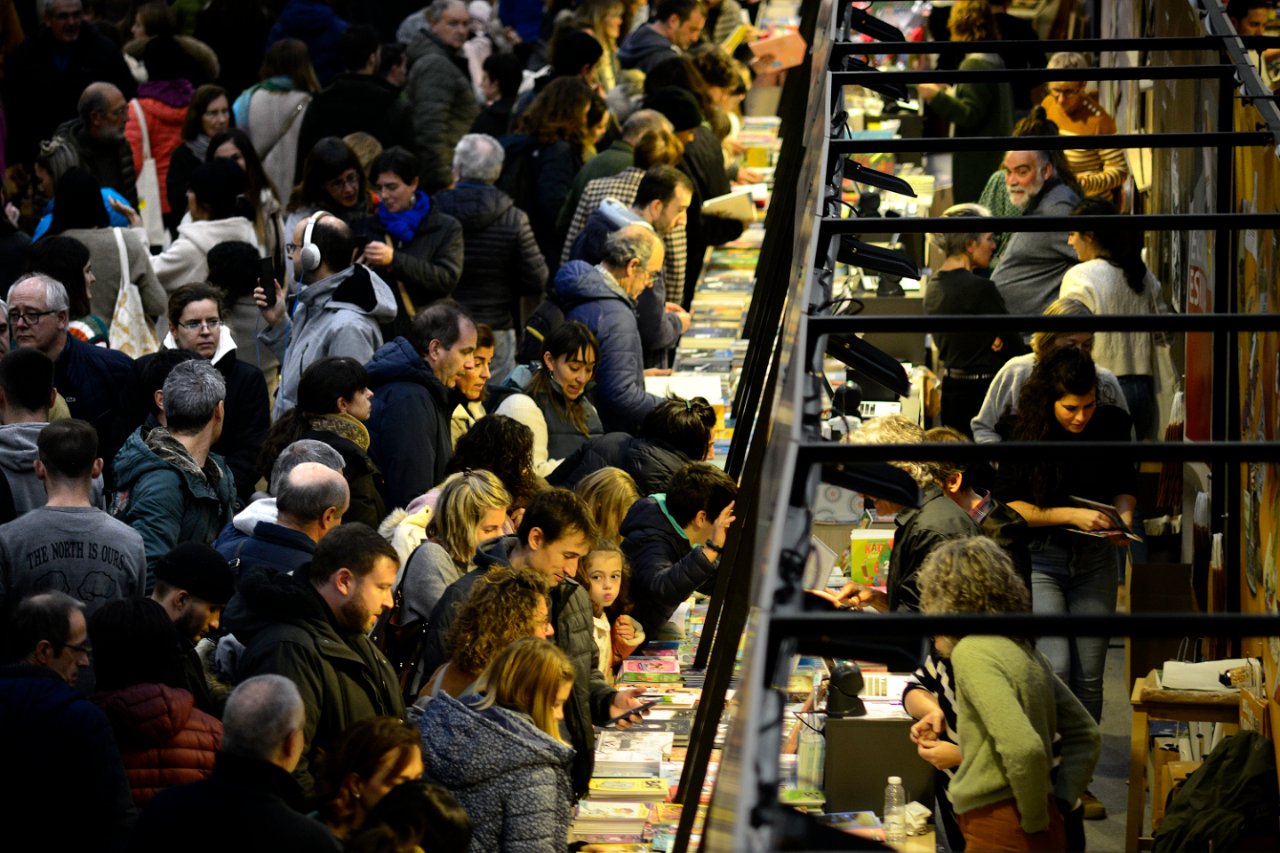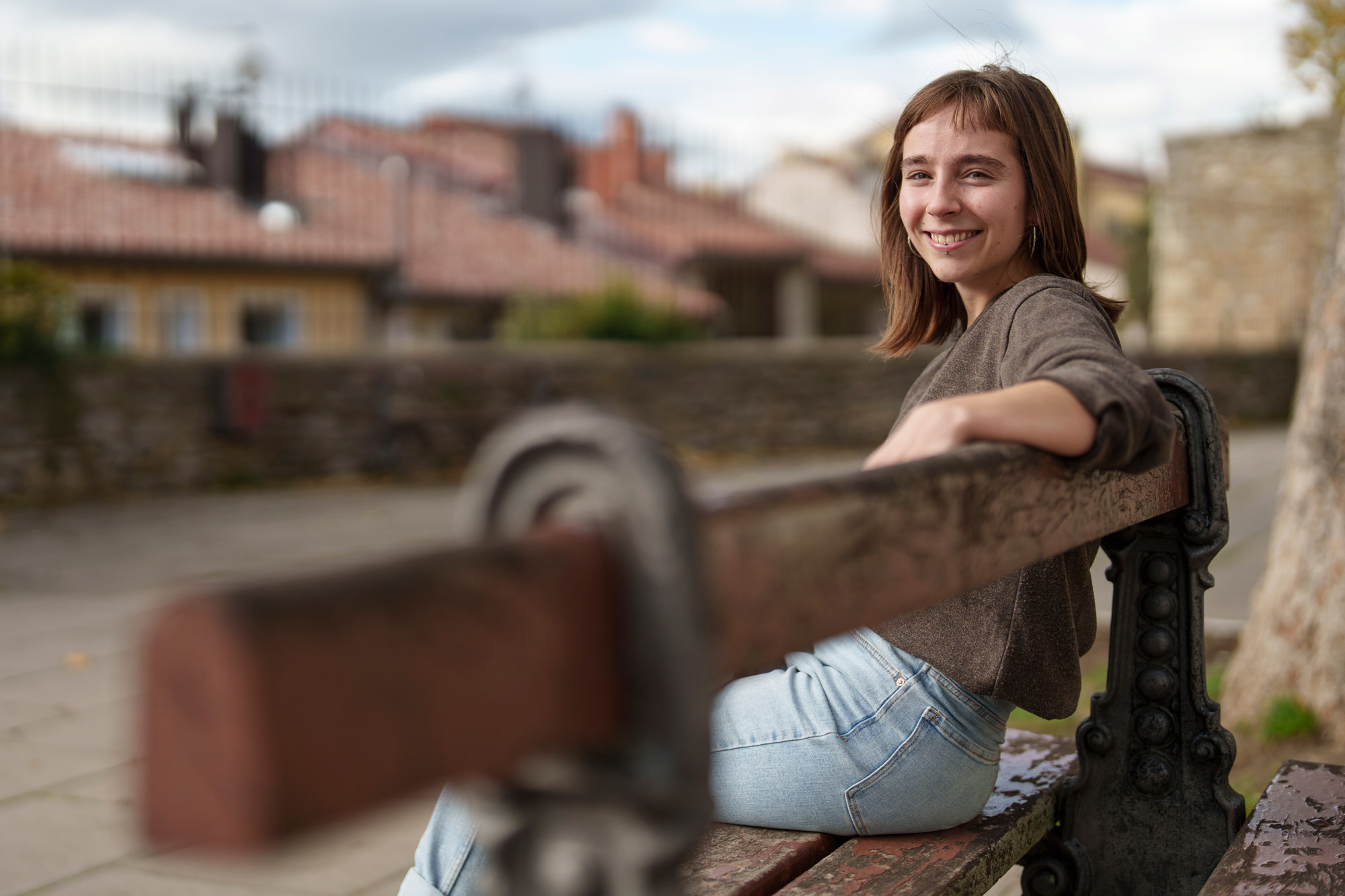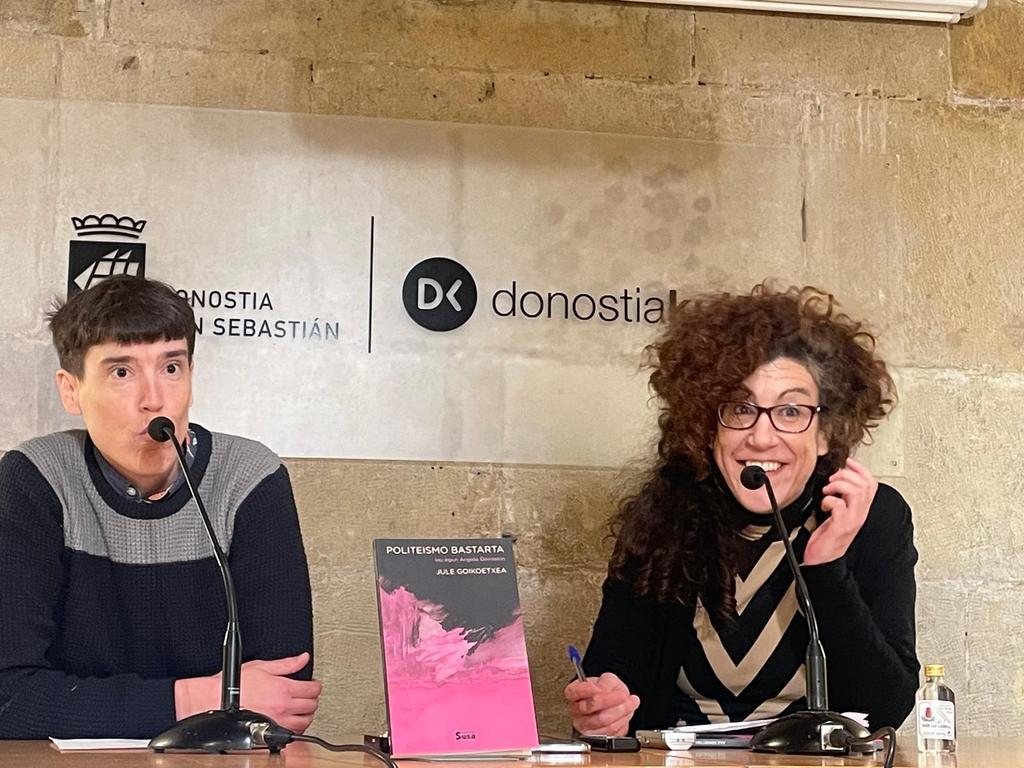Malignant stains of the flower
- The widow of the same day is often perceived, at least in Zuberoa, through the lips of singers of any age. When Maddi Oihenart, for example, gives live, the emotion goes up, every level and the voice always stumbles upon the same part of the sentence: “I started to pour with water in time on a sunny day”… it’s about to mutter. The poetic testimony of this 17th-century crime continues to confuse bowels.

On 8 July 1633, the gigantic festival was well advanced from Garazi and from Basabürüa to rejoice at the guests. The roadblocks accompanied him, madmen of candies and whistles. The bertsolaris were in a corner waiting for the owner of the house to give them the themes to have fun. The breeders did not know what to do to make way for the men and women who were heated. The Lustegi family of Zaro would marry the Irigarai family of Altzai if he married Pierra and Gabriela. No one wanted to miss when it came to sharing the joy of the young couple, even though when she received her she was already about thirty years old.
At age, Gabriela was not just anybody. Mr de Santa Maria de Zaro, Aintzila, Iparce and Larzabal and the daughter of the dignified father, a member of the Parliament of Navarra, will bring a beautiful dowry to the humble noble descendant of Cazenave de Altzai and Mendikota, Pierre Irigarai. Her husband had received £1,875 from the capitulation.
In the open plaza of Altzai the joy was spectacular! Gabriel's face did not deny his happiness, his white silk suit, his fury and his hum, handing out greetings and hugs, while his smile only worshiped him. The future was within reach, both healthy and rich. The neighbors didn't complain, the forests lifted up and discarded in the deepest noise.
In the morning I got
up early to marry, and after the ceremony
I stood up.
A spacious home
in midday...
Jean Dominique Sallaberry (1837- 1903) was a music compiler and verses that put it in his famous collection in 1870. Until then, it had passed from mouth to mouth, from generation to generation. As in the previous hymns, in this case we can also appreciate the dexterity of saying "short" and "good" of the things of the popular poet: in four cocks of a single word it forged an unforgettable world. More than that, every time we hear it makes us jump the tears… Bertsolari speaks from within Gabriela, in the first person, spinning the story from an intimacy. Through truly rapid images, he introduces the cruel events into the memories of the diviners. The girls from the Amaren Alabak group recorded the first album and offered responsibility, in a modern way, in the tables of the Basque Country.
The tragedy of a life was triggered from morning to night, from the day it arose early to the day the pearl entered. From the mention of his costumes we can imagine the joy of the suitor and his social status, wrapped in a karyotic silk that recalls the prosperity and sweetness of China. Melt it from 1271 was known the silk route. Under the shadow of Marco Polo, merchants transported beautiful fabric east to sew the clothes of European aristocrats.
In the second and third coplas comes the conversation of husbands. He was already dying, when Musde Irigarai shook his head, which made him frighten, worried about the nature of the love that united them. I had suspicions of instinctive women, that something was not going well:
Musde Irigarai, my lord,
pick up the
büria or do marriage
hurt you?
“No,
I’m not sorry
to fool him with you, nor to have
lived him in dolütüm.
The tenor of the confession coincided with the time of the death of the young Altzaiarra. Half lying on Gabriel's lap, when he expired, told him that he had a lover he saw in secret. He maintained his relationship in silence and secrecy, adding that only the god of heaven was aware. Gabriel was right to doubt Pierra’s love: marriage could be convincing, as was customary in those days, organized by his parents in exchange for sound sheep.
I had a lover in silence
of all mündü, in
silence of all Mündü and in
the presence of Mr Jinko,
and I have been sent a
Buket with Lilies strangers.
Made with a rare and medium
poisoned lyrium…
Her husband explained to her what the weapon of the crime was, offering her some details, a miserable bouquet of flowers or a miserable bouquet of lilas. Italians masterfully cultivated the land of poisoned lilies. The technique came to court in France through travelling herbivores. Even then, the best of the aristocracy quickly reached the common society. During the resurrection season many died in this soft and comfortable way: the Popes, the Turkish queens, by the hand of Shakespeare the king of Denmark Hamlet and the Musde Irigarai of Altzai on the day of his wedding:
And also when she introduced the
young echave widow...
According to historian Agripa D’Aubigné (1552-1630), the Juana de Labrit suffered a similar death in 1572, while preparing her son’s big wedding in Paris: Medicist Catarín, a Machiavellian in the background, gave him some poisoned gloves. The harsh fever had captivated the wandering queen of Navarre. He had spent four dead nights, bitter suffering. This legend no longer appears anywhere, as the official version says it was destroyed by lung pain. But D’Aubigné had been a poet in Navarre lands, so much he admired the service of the disappointed Queen.
What were the strange lilies mentioned by Mr Irigarai? In the slaughterhouses, in the grasslands, everywhere are the flowers that are collected in autumn and allowed to dry in winter. We know the frivolity of a couple of them: the cicatril, the belladonna and the zarampiño, above all, on the shores of the path, which you see here. Since childhood, we've been taught not to touch these kinds of flowers. The villagers knew how to end badly without the advice of the aristocrats.
The final sheet paints the emotion in the bodies. Words full of realism come from the mouth of bertsolari. We are in a turbulent space beyond death and madness: death is dancing worms with life…
“For seven years I have had at
home the dead man in the attic; in the cold Egünaz and between the two arms the gaüaz, in a
sunset where I have
seen you raining with water.
Astian Egün and Friday
morning!
Gabriela became a widow. The Irigarai family immediately returned the dowry to the Lustegi, the following day. In this loneliness, the woman, to overcome grief, built a macabre, mystical and epic ritual at once. Obscene as well: she held her husband in the loft for seven years, day on cold ground and night between her arms. Incredible fidelity. Admirable. Unpleasant, given that corruption was still taking hold of it.
Using the number seven, the measure of the years, the week to reinforce the repeatability of perseverance and on Friday that believers respected to start cleaning the corpse, bertsolari puts us in a mythical atmosphere. On Fridays, however, it became a little skinny and did not eat meat. At the fall of the afternoon, Gabriel nude her husband and fed with citron water, slowly and affectionately. Perhaps the young widow had asked the doctors to embalm the body of Musde Irigarai so that she could survive under any circumstances as much as love.
Jean de Jaurgain, a 19th-century researcher, was able to report in several leaflets the fate of Gabriela Lieregi: for fifteen years she bore the mourning of Musde Irigarai and, almost half a century later, married the master of the house of Ahetze de Muskildi and Urdiñarbe in 1648. For reasons of old age, she had three children who had fled the social ladder. He died in the sand, on 27 April 1688, at eighty-six, in the quietest death.
And the horror of the song in us ...
Joan Tartas (Sohüta, 1610 - date of unknown death) is not one of the most famous writers in the history of our letters and yet we discover good things in this “mendre piece” whose title, let us admit it from the beginning, is probably not the most commercial of the titles... [+]













ilbeltza-(1).jpg)









.jpeg)